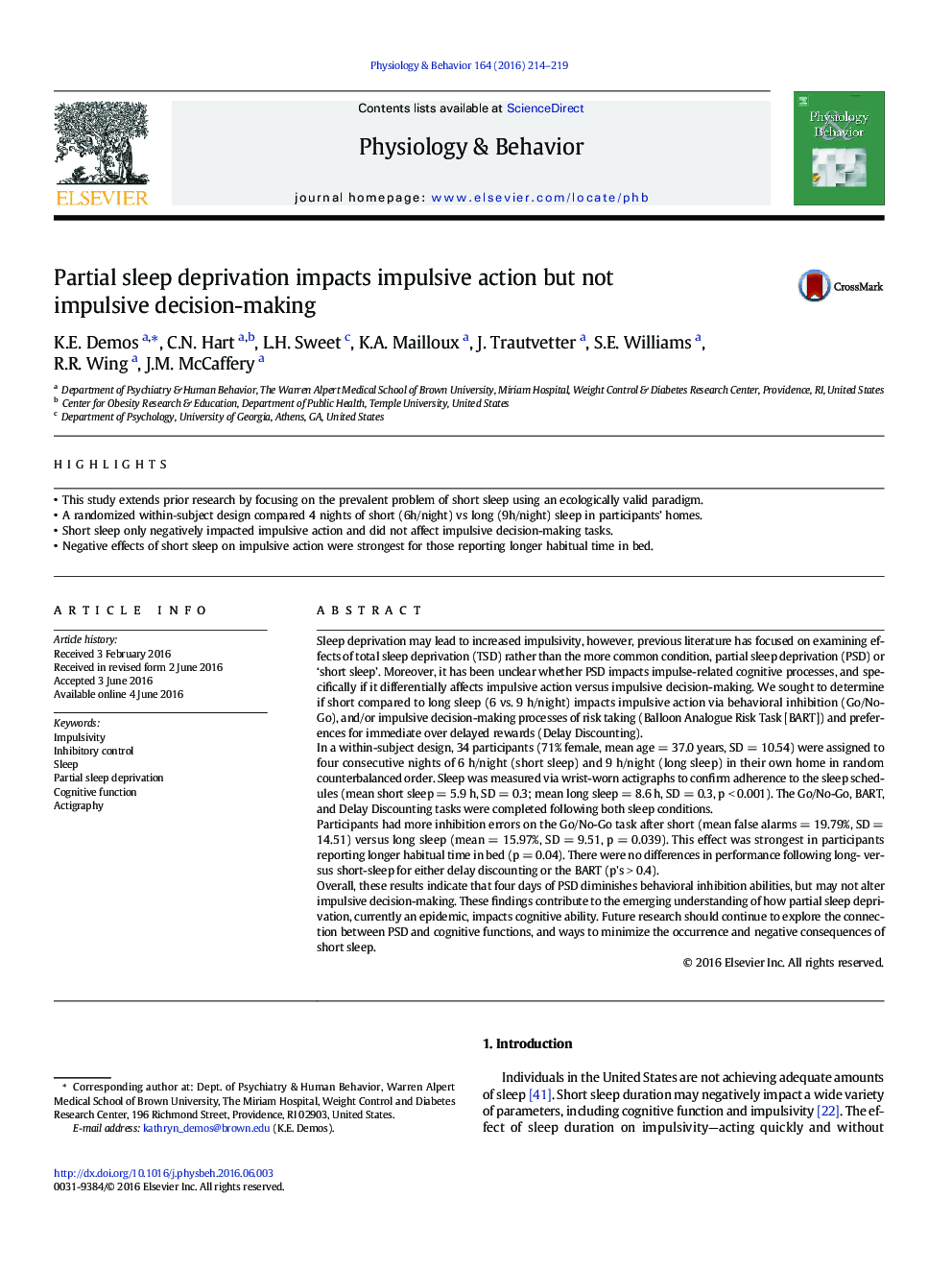| کد مقاله | کد نشریه | سال انتشار | مقاله انگلیسی | نسخه تمام متن |
|---|---|---|---|---|
| 5922618 | 1166279 | 2016 | 6 صفحه PDF | دانلود رایگان |
- This study extends prior research by focusing on the prevalent problem of short sleep using an ecologically valid paradigm.
- A randomized withinâsubject design compared 4 nights of short (6h/night) vs long (9h/night) sleep in participants' homes.
- Short sleep only negatively impacted impulsive action and did not affect impulsive decision-making tasks.
- Negative effects of short sleep on impulsive action were strongest for those reporting longer habitual time in bed.
Sleep deprivation may lead to increased impulsivity, however, previous literature has focused on examining effects of total sleep deprivation (TSD) rather than the more common condition, partial sleep deprivation (PSD) or 'short sleep'. Moreover, it has been unclear whether PSD impacts impulse-related cognitive processes, and specifically if it differentially affects impulsive action versus impulsive decision-making. We sought to determine if short compared to long sleep (6 vs. 9 h/night) impacts impulsive action via behavioral inhibition (Go/No-Go), and/or impulsive decision-making processes of risk taking (Balloon Analogue Risk Task [BART]) and preferences for immediate over delayed rewards (Delay Discounting).In a within-subject design, 34 participants (71% female, mean age = 37.0 years, SD = 10.54) were assigned to four consecutive nights of 6 h/night (short sleep) and 9 h/night (long sleep) in their own home in random counterbalanced order. Sleep was measured via wrist-worn actigraphs to confirm adherence to the sleep schedules (mean short sleep = 5.9 h, SD = 0.3; mean long sleep = 8.6 h, SD = 0.3, p < 0.001). The Go/No-Go, BART, and Delay Discounting tasks were completed following both sleep conditions.Participants had more inhibition errors on the Go/No-Go task after short (mean false alarms = 19.79%, SD = 14.51) versus long sleep (mean = 15.97%, SD = 9.51, p = 0.039). This effect was strongest in participants reporting longer habitual time in bed (p = 0.04). There were no differences in performance following long- versus short-sleep for either delay discounting or the BART (p's > 0.4).Overall, these results indicate that four days of PSD diminishes behavioral inhibition abilities, but may not alter impulsive decision-making. These findings contribute to the emerging understanding of how partial sleep deprivation, currently an epidemic, impacts cognitive ability. Future research should continue to explore the connection between PSD and cognitive functions, and ways to minimize the occurrence and negative consequences of short sleep.
Journal: Physiology & Behavior - Volume 164, Part A, 1 October 2016, Pages 214-219
